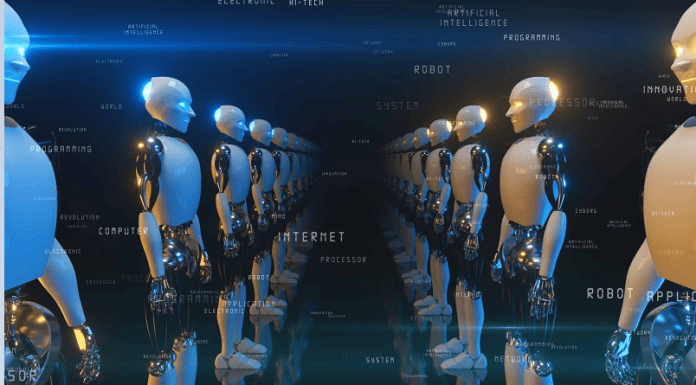As hype and facts surrounding the capabilities of artificial intelligence (AI) increase by the day, a new study suggests that AI could be used to predict voting preferences of people. With AI technologies like ChatGPT seemingly doing everything these days from answering exam questions to composing music, writing computer code and even creating images that put professional photographers to shame, the question of whether AI can predict voting patterns appears mundane.
Researchers at Brigham Young University (BYU) in the United States have now removed any doubts about the ‘voting-discerning’ capability of AI with their new study. The study proved that AI can indeed respond to complex survey questions on political preferences just like a real human.
To determine the possibility of using AI as a substitute for human responders in exit poll survey-style research, the team of researchers at BYU tested the accuracy of programmed algorithms of a GPT-3 language model — a model that mimics the complicated relationship between human ideas, attitudes, and sociocultural contexts of subpopulations.
In one experiment, the researchers created artificial personas by assigning the AI certain characteristics like race, age, ideology, and religiosity; and then tested to see if the artificial personas would vote the same as humans did in the US presidential elections in 2012, 2016, and 2020. Using the American National Election Studies (ANES) for their comparative human database, they found a high correspondence between how the AI and humans voted.
The results were especially interesting as the AI model was not trained to do political science — it was just trained on a hundred billion words of text downloaded from the internet. But the consistent information the researchers received from the model was very closely similar to how people really voted.
In another experiment, they conditioned artificial personas to offer responses from a list of options in an interview-style survey, again using the ANES as their human sample. They again found high similarity between nuanced patterns in human and AI responses.
The study holds exciting prospects for researchers, marketers, and pollsters, as it could evolve to a future where AI is used to craft better survey questions, refining them to be more accessible and representative of populations; and even simulate populations that are difficult to reach. It can also be used to test surveys, slogans, and taglines as a precursor to focus groups.
While this is not meant to replace humans in surveys, the insights provided by AI could help us to study and understand people more effectively. It is about augmenting our ability rather than replacing it and it can help us be more efficient in our work with people by allowing us to pre-test our surveys and our messaging, said the lead-author of the study.”
While the expansive possibilities of large language models such as chat GPT are intriguing, the rise of artificial intelligence poses a host of questions. For instance, how much does AI really know? Which populations will benefit from this technology and which will be negatively impacted? And how can we protect ourselves from scammers and fraudsters who will manipulate AI to create more sophisticated phishing scams?
While much of that is still to be determined, the study lays out a set of criteria that future researchers can use to determine how accurate an AI model is for different subject areas. Academics and other experts will also need to come together to define the ethical boundaries of artificial intelligence surveying in research related to social science.

















